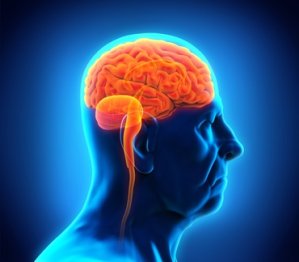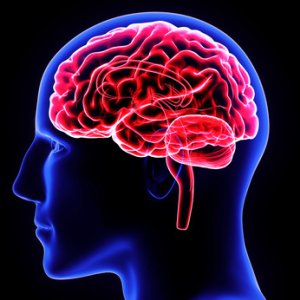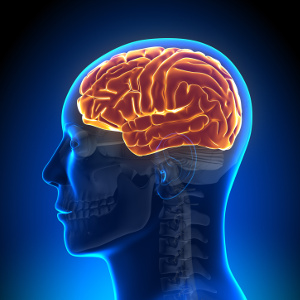| 1 x afterRenderRawModule mod_tags_popular (Search) (18.86KB) (33.43%) | 111.36ms |
| 1 x afterRenderRawModule mod_articles_category (READ MORE...) (6.04KB) (20.64%) | 68.74ms |
| 1 x afterRenderComponent com_tags (1.83MB) (17.52%) | 58.36ms |
| 1 x afterInitialise (1.27MB) (6.96%) | 23.19ms |
| 1 x afterRender (388.4KB) (3.63%) | 12.10ms |
| 1 x beforeRenderRawModule mod_articles_category (READ MORE...) (423.87KB) (3.04%) | 10.13ms |
| 1 x afterRoute (840.53KB) (2.22%) | 7.40ms |
| 1 x beforeRenderRawModule mod_custom (Chronic fatigue tied Alan to his bed but Q10 capsules saved him:) (244.28KB) (2%) | 6.65ms |
| 1 x afterRenderRawModule mod_finder () (128.6KB) (1.33%) | 4.43ms |
| 1 x afterRenderRawModule mod_languages (Sprogskift) (22.55KB) (0.92%) | 3.06ms |
| 1 x afterDispatch (27.44KB) (0.85%) | 2.82ms |
| 1 x afterLoad (456.25KB) (0.84%) | 2.80ms |
| 1 x afterRenderRawModule mod_menu (Main Menu - English) (192.45KB) (0.81%) | 2.70ms |
| 1 x afterRenderRawModule mod_finder () (6.29KB) (0.65%) | 2.16ms |
| 1 x afterRenderRawModule mod_custom () (22.64KB) (0.56%) | 1.85ms |
| 1 x afterRenderRawModule mod_menu (Are you getting enough vitamins and minerals?) (22.39KB) (0.53%) | 1.77ms |
| 1 x beforeRenderRawModule mod_menu (Main Menu - English) (29.14KB) (0.53%) | 1.76ms |
| 1 x afterRenderRawModule mod_languages (Sprogskift Mobil) (3.89KB) (0.47%) | 1.56ms |
| 1 x beforeRenderModule mod_articles_category (READ MORE...) (20.82KB) (0.43%) | 1.44ms |
| 1 x Before Access::preloadComponents (all components) (50.9KB) (0.43%) | 1.44ms |
| 1 x afterRenderRawModule mod_menu (Did you know.....) (25.52KB) (0.27%) | 893μs |
| 1 x afterRenderRawModule mod_menu (Main Menu - English) (6.3KB) (0.21%) | 686μs |
| 1 x After Access::preloadComponents (all components) (103.05KB) (0.17%) | 556μs |
| 1 x afterRenderRawModule mod_custom (Weight loss that works) (1.03KB) (0.1%) | 337μs |
| 1 x afterRenderRawModule mod_custom (Get additionel and more detailed knowledge ) (1.55KB) (0.1%) | 317μs |
| 1 x afterRenderRawModule mod_menu (The key to increased well-being) (17.83KB) (0.09%) | 316μs |
| 1 x beforeRenderComponent com_tags (20.62KB) (0.08%) | 273μs |
| 1 x afterRenderRawModule mod_custom (BOOST YOUR IMMUNE DEFENSE) (3.8KB) (0.05%) | 169μs |
| 1 x beforeRenderRawModule mod_custom () (8.66KB) (0.05%) | 168μs |
| 1 x beforeRenderRawModule mod_custom () (6.62KB) (0.04%) | 128μs |
| 1 x afterRenderRawModule mod_custom () (904B) (0.04%) | 125μs |
| 1 x beforeRenderRawModule mod_menu (Main Menu - English) (5.07KB) (0.03%) | 97μs |
| 1 x afterRenderModule mod_menu (Main Menu - English) (4.86KB) (0.03%) | 97μs |
| 1 x afterRenderRawModule mod_custom () (896B) (0.02%) | 83μs |
| 1 x beforeRenderRawModule mod_custom () (688B) (0.02%) | 76μs |
| 1 x afterRenderModule mod_custom (Chronic fatigue tied Alan to his bed but Q10 capsules saved him:) (1.3KB) (0.02%) | 53μs |
| 1 x afterRenderModule mod_articles_category (READ MORE...) (1.25KB) (0.02%) | 51μs |
| 1 x afterRenderModule mod_custom () (1.23KB) (0.01%) | 44μs |
| 1 x afterRenderModule mod_finder () (1.23KB) (0.01%) | 44μs |
| 1 x After Access::getAssetRules (id:8 name:com_content) (7.05KB) (0.01%) | 43μs |
| 1 x afterRenderRawModule mod_custom (Chronic fatigue tied Alan to his bed but Q10 capsules saved him:) (1.06KB) (0.01%) | 40μs |
| 1 x afterRenderModule mod_menu (Main Menu - English) (1.25KB) (0.01%) | 39μs |
| 1 x afterRenderRawModule mod_custom (Check this before you buy a Q10 product) (944B) (0.01%) | 38μs |
| 1 x afterRenderRawModule mod_custom (Useful Links) (1.02KB) (0.01%) | 34μs |
| 1 x afterRenderRawModule mod_custom (Overview of vitamins, minerals, and essential fatty acids) (960B) (0.01%) | 34μs |
| 1 x afterRenderModule mod_languages (Sprogskift Mobil) (1.27KB) (0.01%) | 32μs |
| 1 x afterRenderModule mod_finder () (3.29KB) (0.01%) | 31μs |
| 1 x beforeRenderRawModule mod_custom (Get additionel and more detailed knowledge ) (816B) (0.01%) | 29μs |
| 1 x beforeRenderRawModule mod_custom (BOOST YOUR IMMUNE DEFENSE) (6.45KB) (0.01%) | 27μs |
| 1 x afterRenderModule mod_custom (Cholesterol-lowering without side effects:) (1.28KB) (0.01%) | 26μs |
| 1 x afterRenderModule mod_custom () (2.43KB) (0.01%) | 24μs |
| 1 x beforeRenderRawModule mod_menu (The key to increased well-being) (736B) (0.01%) | 22μs |
| 1 x afterRenderModule mod_custom (BOOST YOUR IMMUNE DEFENSE) (1.28KB) (0.01%) | 22μs |
| 1 x afterRenderModule mod_menu (The key to increased well-being) (1.28KB) (0.01%) | 21μs |
| 1 x afterRenderRawModule mod_custom (Q10 goes by many names) (928B) (0.01%) | 20μs |
| 1 x afterRenderRawModule mod_custom (Antiaging) (912B) (0.01%) | 20μs |
| 1 x afterRenderRawModule mod_custom (Cholesterol-lowering without side effects:) (1.06KB) (0.01%) | 20μs |
| 1 x beforeRenderRawModule mod_custom (Overview of vitamins, minerals, and essential fatty acids) (768B) (0.01%) | 19μs |
| 1 x beforeRenderRawModule mod_custom (Useful Links) (1.06KB) (0.01%) | 19μs |
| 1 x afterRenderModule mod_tags_popular (Search) (1.27KB) (0.01%) | 19μs |
| 1 x afterRenderModule mod_custom (Get additionel and more detailed knowledge ) (1.3KB) (0.01%) | 19μs |
| 1 x afterRenderModule mod_custom (Useful Links) (1.27KB) (0.01%) | 19μs |
| 1 x afterRenderModule mod_languages (Sprogskift) (5.31KB) (0.01%) | 19μs |
| 1 x afterRenderModule mod_custom () (2.71KB) (0.01%) | 19μs |
| 1 x afterRenderModule mod_custom (Overview of vitamins, minerals, and essential fatty acids) (1.31KB) (0.01%) | 19μs |
| 1 x afterRenderModule mod_custom (Q10 goes by many names) (1.27KB) (0.01%) | 19μs |
| 1 x afterRenderModule mod_menu (Are you getting enough vitamins and minerals?) (1.3KB) (0.01%) | 18μs |
| 1 x beforeRenderRawModule mod_languages (Sprogskift) (3.94KB) (0.01%) | 18μs |
| 1 x afterRenderModule mod_custom (Check this before you buy a Q10 product) (1.28KB) (0.01%) | 18μs |
| 1 x afterRenderModule mod_custom (Weight loss that works) (1.27KB) (0.01%) | 18μs |
| 1 x afterRenderModule mod_custom (Antiaging) (3.77KB) (0.01%) | 18μs |
| 1 x afterRenderModule mod_custom (Are you taking supplements) (1.28KB) (0.01%) | 17μs |
| 1 x afterRenderModule mod_menu (Did you know.....) (1.27KB) (0.01%) | 17μs |
| 1 x afterRenderRawModule mod_custom (Are you taking supplements) (1.03KB) (0%) | 16μs |
| 1 x beforeRenderRawModule mod_languages (Sprogskift Mobil) (912B) (0%) | 16μs |
| 1 x Before Access::getAssetRules (id:8 name:com_content) (840B) (0%) | 15μs |
| 1 x beforeRenderRawModule mod_menu (Did you know.....) (720B) (0%) | 15μs |
| 1 x beforeRenderRawModule mod_tags_popular (Search) (2.36KB) (0%) | 14μs |
| 1 x beforeRenderModule mod_custom (BOOST YOUR IMMUNE DEFENSE) (6.81KB) (0%) | 14μs |
| 1 x beforeRenderRawModule mod_custom (Cholesterol-lowering without side effects:) (368B) (0%) | 12μs |
| 1 x beforeRenderRawModule mod_custom (Antiaging) (720B) (0%) | 11μs |
| 1 x beforeRenderRawModule mod_menu (Are you getting enough vitamins and minerals?) (2.5KB) (0%) | 11μs |
| 1 x beforeRenderModule mod_tags_popular (Search) (1.98KB) (0%) | 11μs |
| 1 x beforeRenderRawModule mod_finder () (2.3KB) (0%) | 11μs |
| 1 x beforeRenderRawModule mod_custom (Q10 goes by many names) (608B) (0%) | 10μs |
| 1 x beforeRenderModule mod_menu (Are you getting enough vitamins and minerals?) (2.13KB) (0%) | 10μs |
| 1 x beforeRenderRawModule mod_finder () (6.34KB) (0%) | 10μs |
| 1 x beforeRenderRawModule mod_custom (Check this before you buy a Q10 product) (752B) (0%) | 9μs |
| 1 x beforeRenderRawModule mod_custom (Are you taking supplements) (736B) (0%) | 9μs |
| 1 x beforeRenderRawModule mod_custom (Weight loss that works) (736B) (0%) | 9μs |
| 1 x beforeRenderModule mod_menu (Did you know.....) (336B) (0%) | 9μs |
| 2 x beforeRenderModule mod_finder () (704B) (0%) | 9μs |
| 1 x beforeRenderModule mod_custom (Get additionel and more detailed knowledge ) (1.17KB) (0%) | 9μs |
| 1 x beforeRenderModule mod_menu (The key to increased well-being) (352B) (0%) | 9μs |
| 3 x beforeRenderModule mod_custom () (704B) (0%) | 9μs |
| 1 x beforeRenderModule mod_custom (Overview of vitamins, minerals, and essential fatty acids) (384B) (0%) | 8μs |
| 1 x beforeRenderModule mod_custom (Check this before you buy a Q10 product) (352B) (0%) | 8μs |
| 1 x beforeRenderModule mod_custom (Are you taking supplements) (352B) (0%) | 8μs |
| 1 x beforeRenderModule mod_custom (Weight loss that works) (336B) (0%) | 8μs |
| 1 x beforeRenderModule mod_custom (Useful Links) (1.44KB) (0%) | 8μs |
| 2 x beforeRenderModule mod_menu (Main Menu - English) (720B) (0%) | 8μs |
| 1 x beforeRenderModule mod_custom (Q10 goes by many names) (208B) (0%) | 7μs |
| 1 x beforeRenderModule mod_custom (Antiaging) (336B) (0%) | 7μs |
| 1 x beforeRenderModule mod_languages (Sprogskift) (720B) (0%) | 6μs |
| 1 x beforeRenderModule mod_languages (Sprogskift Mobil) (720B) (0%) | 5μs |
| 1 x beforeRenderModule mod_custom (Chronic fatigue tied Alan to his bed but Q10 capsules saved him:) (768B) (0%) | 3μs |
| 1 x beforeRenderModule mod_custom (Cholesterol-lowering without side effects:) (752B) (0%) | 2μs |
 According to a study that is published in PLoS Medicine’s Special Issue on Dementia shows that low levels of polyunsaturated fatty acids in the brain may speed up the development of Alzheimer’s disease. It is therefore vital not to shy away from dietary fats. What is important, however, is to consume unspoiled sources of omega-3 and omega-6 fatty acids in the proper balance. Polyunsaturated fatty acids have numerous functions in the brain, on which our nervous system, cardiovascular system, memory, learning ability, and lingual skills depend.
According to a study that is published in PLoS Medicine’s Special Issue on Dementia shows that low levels of polyunsaturated fatty acids in the brain may speed up the development of Alzheimer’s disease. It is therefore vital not to shy away from dietary fats. What is important, however, is to consume unspoiled sources of omega-3 and omega-6 fatty acids in the proper balance. Polyunsaturated fatty acids have numerous functions in the brain, on which our nervous system, cardiovascular system, memory, learning ability, and lingual skills depend.







 Alzheimer’s disease causes brain malfunctions, and the condition is the leading cause of dementia. According to a studies of humans and mice, there may be a link between borderline
Alzheimer’s disease causes brain malfunctions, and the condition is the leading cause of dementia. According to a studies of humans and mice, there may be a link between borderline  Lack of
Lack of  Studies show that large quantities of
Studies show that large quantities of  Apparently so. According to a new study published in the journal Alzheimer’s and Dementia, older people who take a daily multivitamin supplement for several years are far less likely to develop dementia, Alzheimer’s disease, and other types of cognitive decline. The new study supports earlier research where it has been seen that the different vitamins and minerals increase cerebral blood flow and protect neurons. It pays off to choose high-quality supplements to make sure that the nutrients are properly absorbed in the body.
Apparently so. According to a new study published in the journal Alzheimer’s and Dementia, older people who take a daily multivitamin supplement for several years are far less likely to develop dementia, Alzheimer’s disease, and other types of cognitive decline. The new study supports earlier research where it has been seen that the different vitamins and minerals increase cerebral blood flow and protect neurons. It pays off to choose high-quality supplements to make sure that the nutrients are properly absorbed in the body.

 The number of seniors in the world is growing steadily which means a surge in problems like cardiovascular disease, cancer, respiratory illnesses, overweight, diabetes, rheumatism, dementia, and Alzheimer’s disease. These diseases that have a widespread impact on human lives and are a burden to society are often linked to chronic inflammation. A group of scientists therefore decided to look closer at studies that have found a positive effect of the omega-3 fatty acids EPA and DHA on cognitive functioning, maintenance of muscle mass, and prevention and treatment of a host of serious diseases that are related to ageing. It is vital to start supplementing early and to take the right doses, according to the new review article published in Nutrients.
The number of seniors in the world is growing steadily which means a surge in problems like cardiovascular disease, cancer, respiratory illnesses, overweight, diabetes, rheumatism, dementia, and Alzheimer’s disease. These diseases that have a widespread impact on human lives and are a burden to society are often linked to chronic inflammation. A group of scientists therefore decided to look closer at studies that have found a positive effect of the omega-3 fatty acids EPA and DHA on cognitive functioning, maintenance of muscle mass, and prevention and treatment of a host of serious diseases that are related to ageing. It is vital to start supplementing early and to take the right doses, according to the new review article published in Nutrients.
 Brain cells (neurons) contain comparatively large concentrations of
Brain cells (neurons) contain comparatively large concentrations of  Groundbreaking research reveals that the human brain is detoxified during our sleep. On the other hand, toxins accumulate in the brain if we suffer from sleep disturbances, increasing our risk of dementia, Alzheimer’s disease, stroke, and numerous other conditions. If you are not helped by the most common guidelines for better sleep, supplementing with the “sleep hormone” melatonin may be an obvious solution that even offers plenty of positive “side effects.”
Groundbreaking research reveals that the human brain is detoxified during our sleep. On the other hand, toxins accumulate in the brain if we suffer from sleep disturbances, increasing our risk of dementia, Alzheimer’s disease, stroke, and numerous other conditions. If you are not helped by the most common guidelines for better sleep, supplementing with the “sleep hormone” melatonin may be an obvious solution that even offers plenty of positive “side effects.” Recent studies reveal that around 20% of people who take metformin, a drug against type 2 diabetes, are
Recent studies reveal that around 20% of people who take metformin, a drug against type 2 diabetes, are  The number of older people is on the rise, and so is the number of people who suffer from dementia and die as a result of this condition. If you increase your dietary intake of
The number of older people is on the rise, and so is the number of people who suffer from dementia and die as a result of this condition. If you increase your dietary intake of  Dr. Yamagishi and colleagues from Japan's University of Tsukuba in a new study has used data from 6,000 middle-aged Japanese, and for the first time have been able to show that low levels of coenzyme Q10 in the blood are strongly associated to an increased risk of disabling dementia.
Dr. Yamagishi and colleagues from Japan's University of Tsukuba in a new study has used data from 6,000 middle-aged Japanese, and for the first time have been able to show that low levels of coenzyme Q10 in the blood are strongly associated to an increased risk of disabling dementia. Neurological disorders such as Alzheimer’s disease, dementia, depression, Parkinson’s disease, stroke, migraine, and fibromyalgia are rather common. These conditions are a result of imbalances in the nervous system, and they are often insidious. In a new review article that is published in Frontiers in Neuroscience, researchers have studied Q10’s role in the different neurological disorders. The reason for this is that
Neurological disorders such as Alzheimer’s disease, dementia, depression, Parkinson’s disease, stroke, migraine, and fibromyalgia are rather common. These conditions are a result of imbalances in the nervous system, and they are often insidious. In a new review article that is published in Frontiers in Neuroscience, researchers have studied Q10’s role in the different neurological disorders. The reason for this is that  The number of seniors worldwide is increasing and more and more are affected by Alzheimer’s disease, the leading cause of dementia. We should therefore focus much more on this health problem that comes with an enormous human and socio-economic price tag. According to a new meta-analysis, supplementation with
The number of seniors worldwide is increasing and more and more are affected by Alzheimer’s disease, the leading cause of dementia. We should therefore focus much more on this health problem that comes with an enormous human and socio-economic price tag. According to a new meta-analysis, supplementation with  It is commonly known that
It is commonly known that  Alzheimer’s is a growing health burden worldwide, and diet appears to play a major role. A large meta-analysis published in Frontiers in Aging Neuroscience recently revealed that patients with Alzheimer’s disease have lower levels of
Alzheimer’s is a growing health burden worldwide, and diet appears to play a major role. A large meta-analysis published in Frontiers in Aging Neuroscience recently revealed that patients with Alzheimer’s disease have lower levels of  Undernourishment typically affects the elderly, those with diseases, addicts, and people with eating disorders. The condition increases the risk of serious diseases and repeated hospitalizations and is an enormous economic burden to society. Many undernourished people suffer from loss of appetite, a problem that can often be stimulated with improved diets and supplements of
Undernourishment typically affects the elderly, those with diseases, addicts, and people with eating disorders. The condition increases the risk of serious diseases and repeated hospitalizations and is an enormous economic burden to society. Many undernourished people suffer from loss of appetite, a problem that can often be stimulated with improved diets and supplements of Alcohol is one of the most compromising factors when it comes to public health, and alcohol abuse comes at an enormous cost, both to the individual and to society. A large alcohol consumption contributes as a factor to insidious dementia, but according to a new study from Taiwan, supplementing with
Alcohol is one of the most compromising factors when it comes to public health, and alcohol abuse comes at an enormous cost, both to the individual and to society. A large alcohol consumption contributes as a factor to insidious dementia, but according to a new study from Taiwan, supplementing with  Dementia is on the rise across the globe but according to a study from University of South Australia,
Dementia is on the rise across the globe but according to a study from University of South Australia,  The number of older people is increasing rapidly, which means more and more people suffer from different types of dementia.
The number of older people is increasing rapidly, which means more and more people suffer from different types of dementia. 

 The risk of dementia and neurological disorders increases with age. Diet plays an important role and it is assumed that the widespread lack of
The risk of dementia and neurological disorders increases with age. Diet plays an important role and it is assumed that the widespread lack of "After about one week of taking the Q10 supplement I could feel a huge difference," says 23-year old Alan Piccini, who has been suffering from extreme fatigue and muscle aches ever since he was a child.
"After about one week of taking the Q10 supplement I could feel a huge difference," says 23-year old Alan Piccini, who has been suffering from extreme fatigue and muscle aches ever since he was a child. “Taking capsules with co-enzyme Q10 has freed me of the severe side effects of my cholesterol lowering medicine,” Mrs Franken explains.
“Taking capsules with co-enzyme Q10 has freed me of the severe side effects of my cholesterol lowering medicine,” Mrs Franken explains.